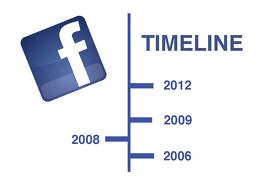Home | You searched for "facebook"
Search results for "facebook"

Despite its claim to being aware of social media privacy, Facebook continues to mine user activity for ad data. Now, it’s expanding beyond the boundaries of its site – and even your browser.
Though it claims to respect user privacy and keep its targets protected, Facebook is offering advertisers on its site a new way to narrow its audience through demographics based on specific purchases called “Partner Categories.” Beware of the rather innocuous official announcement which says that a local business could use it to find customers who may be willing to give them their business, according to recent purchases. The feature would accomplish this using third party data collection companies like Acxiom to build predictions based on what you have bought.
Previously, advertisers showed ads to us based on the interests we expressed on Facebook. Now, they have the added ammunition of knowing every product and brand we’ve purchased through our desktop or mobile.
Posted in Social Media Privacy by Identity Theft Speaker John Sileo.
Tags: data security, Social Media Privacy

All Facebook Home will cost you is … well … your right to social media privacy on your Android phone. That’s a steep price to pay for Facebook Home saving you the extra step of clicking through a mobile app to access photos, updates and messages.
Facebook recently announced its new application “Home,” which will essentially replace the standard home screen of a user’s Android phone, giving users all Facebook, all the time. If you thought this social media colossus had control over data before, wait until users start willingly handing over their home screens. By doing so, they’re offering up valuable information contained in their mobile phones.
Facebook makes it very cloudy to know what you’re actually giving away. And though it may not be as much as the doomsayers predict, it surely is more than you’ll want to willingly contribute. For instance, Facebook’s new feature “Chat Head” combines Facebook messages with SMS. Even if it’s not collecting voice data from calls, it will likely gather data such as who you’ve called, how long you talked and how often that number is called.
Posted in Social Media Privacy by Identity Theft Speaker John Sileo.
Tags: cyber data protection, Social Media Privacy
One billion people worldwide use Facebook to share the details of their lives with their friends and may be unaware their Facebook Privacy could be compromised. Trouble is, they also might be unintentionally divulging matters they consider private to co-workers, clients and employers.
Worse yet, they may be sharing their privacy with marketing companies and even scammers, competitors and identity thieves. Luckily, with some Facebook privacy tips, you can help protect your account online.
Here are six ways Facebook could be compromising your private information and how to protect yourself:
1. The new Timeline format brings old lapses in judgment back to light. Timeline, introduced in late 2011, makes it easy for people to search back through your old Facebook posts, something that was very difficult to do in the past. That could expose private matters and embarrassing photos that you’ve long since forgotten posting.
Posted in Social Media Privacy by Identity Theft Speaker John Sileo.
Tags: "Online Privacy Expert", Facebook, facebook privacy, Facebook Safety, Identity Theft Prevention, Identity Theft Speaker, John Sileo, Online/Social Media Privacy, Social Media Privacy

Facebook identity thefts are nothing new. The social media site has been the vehicle for all sorts of fake links and bots in years past. But a new trick that could threaten your digital reputation is proving particularly insidious.
If you get a message to “Experience Facebook Black” sometime soon, you’d be advised to turn it down, unless you’re OK with your digital reputation being hijacked. This latest hack could spread malicious software without you or your Facebook friends even knowing until it’s too late.
The scam allegedly works by offering users the chance to change the color of the Facebook background to black – and then asks for users to respond to a series of questions by giving out information. Of course, the promised color conversion is a lie: play into the hands of this fraud and you’ll just wind up as a means of spreading it further, with your information used to make a dummy page to trick your connections.
Posted in Digital Reputation & Trust by Identity Theft Speaker John Sileo.
Tags: digital reputation, online reputation consultant, social media exposure

Social media seems to be all about spreading the love. If you like something, you show it by clicking the 'like' button, no questions asked. For most people, it stops there – but not for Facebook.
Everything you do online gets noticed by someone, and even the most minor of digital movements can have repercussions you aren't aware of. A perfect example of this is the "like" feature of Facebook. It seems harmless enough, but a recent study demonstrated that there are unseen depths to it that you might not know about. Every "like" is a new piece of data that can be strung together with the rest of your online information, creating a picture of you that is scarily accurate.
Posted in Online Privacy by Identity Theft Speaker John Sileo.
Tags: online reputation management, social media exposure, Social Media Privacy

Remember those strikes against Facebook, Apple and Microsoft a few weeks ago? New data has given us a little more info on where these attacks came from.
Even if you think you've locked your private information down, social media exposure is always a risk. We already knew a little bit about the source of the breach that recently compromised Facebook and other major companies. Now we have the name of one of the websites that launched the hack: iPhoneDevSDK.com, a mobile app development site that acted as a "watering hole" for malware. It was only one of many, however, and the source of these attacks is still somewhat murky.
The name of the particular species of malware that infiltrated Macs has also been identified. According to the Security Ledger, it's called Pintsized.A, and it's a Trojan that can disguise itself as an innocuous file while subtly corrupting your device. The attacks were disseminated through the use of a critical security loophole in Java, something that has been a source of criticism for cyber security professionals in the past.
Posted in Cyber Data Security by Identity Theft Speaker John Sileo.
Tags: Cyber Security, social media exposure, Social Media Privacy
February 26-28 will mark the presentation of the National Association of Federal Credit Unions (NAFCU)'s Technology and Security Conference in Austin, Texas. A keynote speech at the event entitled "Thieves, Hackers, and Facebook Attackers: Credit Union Privacy Survival in a Social World," will be given by fraud expert John Sileo. The talk will present credit unions with the knowledge they need to help stop fraud before it starts.
Online security is more perilous and precious than ever. In times of constant attack, how will you keep your information safe?
Social media, data sharing and the wonders of the cloud all offer so many advantages to modern commerce that the myriad dangers often go unseen. Who has access to your data? What kind of habits are you enforcing? We live in a time where we are asked to scatter our personal information to the wind without a second thought – and we often do.
Posted in Cyber Data Security by Identity Theft Speaker John Sileo.
Tags: Cyber Crime, fraud awareness training
Viruses are the biological weapons of the internet: once someone gets infected, it's only a matter of time before the contagion starts to spread. Even a social media giant like Facebook isn't immune to the kinds of digital "superbugs" that cause data security breaches.
You would think that corporate titans – with their advanced defenses – would be most immune to the effects of malware, but the reality is that the bigger the service provider, the more vulnerable it can be to hackers and cybercriminals. Recently, we saw Twitter get hit with a massive hack that targeted the data of a quarter-million people. Now, Facebook has been victimized by a vicious strain of software.
Last Friday, Facebook security posted a statement on its blog detailing what it called a "sophisticated attack" on its system that occurred in January.
Posted in Cyber Data Security, Online Privacy by Identity Theft Speaker John Sileo.
Tags: data security breaches, data security consultant, social media exposure
Facebook will now identify ads that have been targeted at users based on browser histories, ZIP codes and other data that advertisers collect. This is just a glimpse into the information floating around the Web about us.
According to a recent article in VentureBeat, a little blue triangle over an ad on Facebook will denote that it has been targeted for you specifically. But, don’t get too excited about this supposed transparency just yet.
For starters, it doesn’t reveal the specific information that led the advertisers to target you, nor does it specify how they obtained it. Furthermore, you have to jump through more than one hoop to even see the little blue triangle.
Posted in Online Privacy by Identity Theft Speaker John Sileo.
Tags: internet privacy, online privacy














